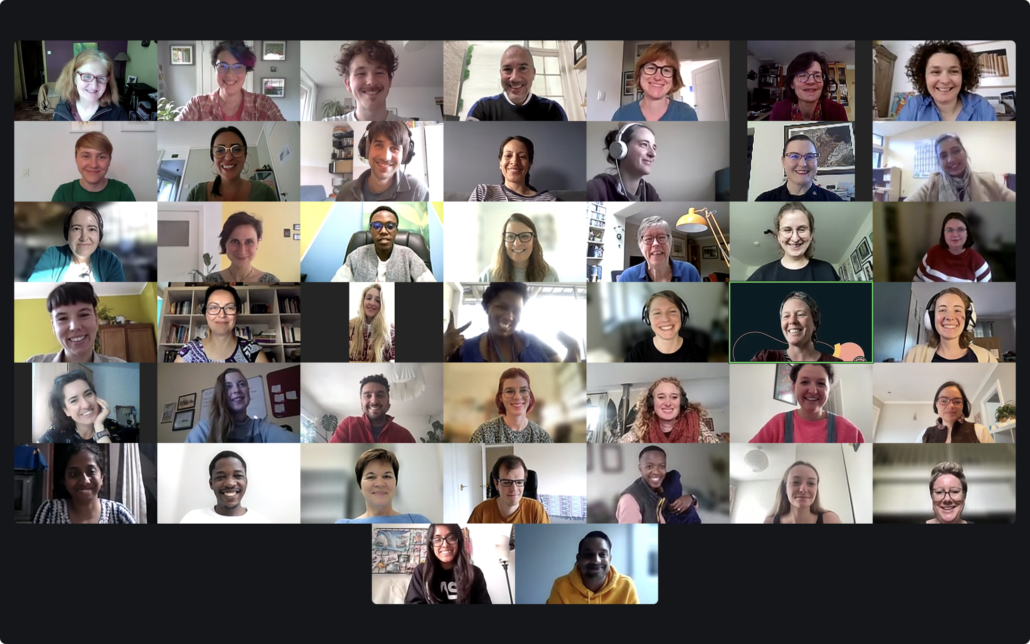Group picture of CFA 2024 participants
28 May 2024
By Linka Maritz
From 21 to 23 May 2024, Stellenbosch University co-hosted a three-day online training programme on public engagement with science, called the ‘Collaborative Futures Academy’ (CFA). The theme for the 2024 academy was ‘emotions in engagement’. The CFA is organised annually by the Berlin School of Public Engagement and Open Science, with the University of Cambridge, Wellcome Connecting Science, the Kavli Centre for Ethics, Science and the Public, and Stellenbosch University as co-hosts. This year, 45 researchers or practitioners working in public engagement with science were selected from around the world to participate, including 11 from South Africa, with four of those from Stellenbosch University.
Prof. Marina Joubert co-presented one of the opening sessions of the academy around research insights linked to emotions in engagement. Together with Prof. Richard Milne of Cambridge University, they discussed research findings about how emotions can be used to create public engagement with science, but also how emotions can sometimes complicate engagement. Prof. Joubert has been a member of the organising team behind the Academy since 2023. The second day of the academy featured case studies from researchers and practitioners that work with emotions in their engagement activities including Dr Laura Davies from the A Good Death? project, Dr Rich Gorman who uses creative activities to draw out the lived experience of rare disease and Anna Berti Suman talking about her “Sensing for Justice” project. This was followed by creative workshops on Tiny Books, Literature in Engagement, and Nerves, Conflict and Humour. The third day focused on how to have meaningful conversations. Through practical exercises and forum theatre, participants learned how to deal with emotions and emotional exchanges and make more meaningful connections.
Feedback from Stellenbosch University participants were positive. Dr Astrid Treffry-Goatly, senior researcher at the Centre for Epidemic Response and Innovation, who works in the intersection of health research and the creative arts, found value in connecting with other researchers and practitioners that also work in public engagement and the exchange of ideas, methodologies, and experiences. Dr Fisayo Ajala, postdoctoral research fellow at the Department of Sociology, found the workshop engaging and intense. He considered the role of empathy in engagement in the absence of shared experiences as a key message from the session on “literature in engagement.”
Creative harvesting for the whole workshop was done by a South African artist, CareCreative, and will be collated along with other resources as a takeaway for all participants.



